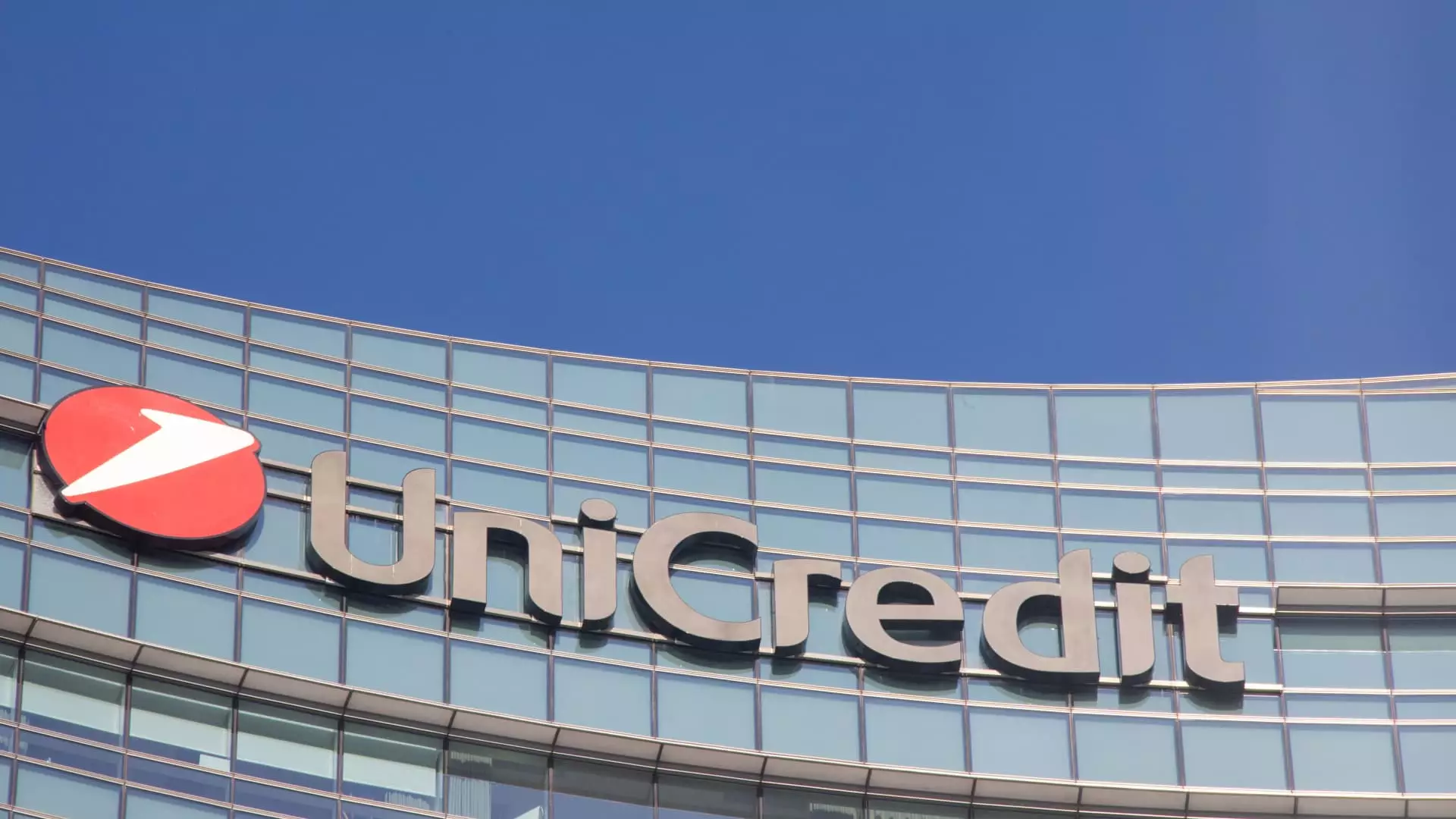In a bold strategic maneuver, UniCredit has proposed an acquisition of Banco BPM for an estimated €10 billion ($10.5 billion). This ambitious bid comes at a time when the European banking landscape is experiencing a wave of consolidations, driven by the need for larger firms to enhance their competitive edge. UniCredit’s intent is clear: to fortify its position as a leading European banking entity. By offering €6.657 per share, which is a slight premium compared to Banco BPM’s closing price of €6.644, the Italian lender not only seeks to expand its market footprint but also aims to leverage existing synergies between the two financial institutions.
The timing of this bid is significant. The banking sector in Europe has been considered ripe for consolidation for several years, primarily due to sluggish growth and need for cost efficiencies. With larger institutions like UniCredit boasting significant liquidity, the stage is set for impactful mergers. Notably, this acquisition attempt occurs in the wake of a series of merger announcements in the European banking space this year, hinting at a shift towards creating more formidable banking entities capable of surviving market volatilities.
UniCredit’s recent maneuvers, including increasing its stake in the German lender Commerzbank to approximately 21%, further reflect a broader strategy to enhance its influence and operational scale across Europe. The Italian bank’s desire to augment its stake in Commerzbank up to 29.9% — pending approval from the German government — highlights its aggressive pursuit of growth through acquisitions.
Despite the potential upsides, there are obstacles to overcome. The German government’s hesitancy regarding foreign acquisitions, as articulated by Chancellor Olaf Scholz, poses a significant hurdle for UniCredit in its pursuit of Commerzbank. Such sentiments echo concerns within the banking industry about the implications of hostile takeovers, which could complicate UniCredit’s broader acquisition objectives.
On the home front, Banco BPM recently engaged in its own strategic ventures, such as bidding for the asset manager Anima and acquiring a stake in the troubled Monte dei Paschi di Siena (MPS). These developments may complicate Banco BPM’s willingness to engage in a merger, as the Italian lender seems focused on strengthening its independent positioning in the market.
The financial backdrop of UniCredit also accentuates the feasibility of this acquisition. With a reported quarterly net profit of €2.5 billion ($2.25 billion) and projections indicating a full-year net profit above €9 billion, the bank is in a strong position to absorb Banco BPM. The impressive rise of UniCredit’s shares by approximately 55% this year further supports the bank’s resourcefulness and investor confidence.
While UniCredit’s bid for Banco BPM presents a sizable opportunity for expanding its influence in the European banking sector, it is also fraught with challenges that could impact its outcome. Navigating regulatory scrutiny, particularly in Germany, alongside Banco BPM’s own strategic aspirations, will be critical as UniCredit seeks to realize its vision of becoming a premier pan-European banking group. The coming months will prove essential in determining whether this ambitious move will be successful or fall short in a landscape continually shaped by discussions of consolidation and competition.

